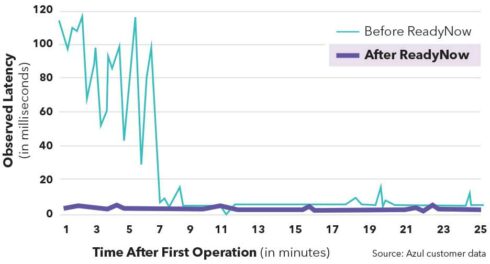
The company announced ReadyNow Orchestrator (RNO), which is a new feature that reduces Java warmup time and uses demand to determine cloud compute capacity.
“When a JVM wakes up, we believe it spends too much time profiling application usage to get the best optimizations – so we solved that when we first introduced ReadyNow. Now, we are delivering a turnkey way to record and deliver the optimization information needed to get you to full speed as quickly as possible,” said Martin Van Ryswyk, chief product officer at Azul. “We focused on selecting the best performance optimizations and then propagating to the rest of a fleet, with more intelligence to fully leverage cloud elasticity.”
According to Azul, companies running business-critical workloads may be familiar with problems regarding warmup time. Whenever an application is launched, the Java Virtual Machine (JVM) has to compile it into a form that can be executed by the server, and once an application is running, the JVM is constantly recompiling to improve performance, creating a “warming up” period before hitting peak performance.
RNO addresses this issue by creating an optimization profile where information about an application’s usage is stored. This profile is then used to shorten the time it takes to warm up the next time the application is started.
Azul automates distribution of these profiles by delegating it to a dedicated service that monitors the whole Java fleet. This allows it to serve the best profile automatically without a developer needing to manually intervene.
William Fellows, research director at 451 Research added: “Java’s warmup problem has long been an issue in ensuring peak application performance. Organizations should consider ways to reduce operational friction by automating the selection of the best optimization patterns for container-based applications while also improving elasticity to control cloud costs.”






